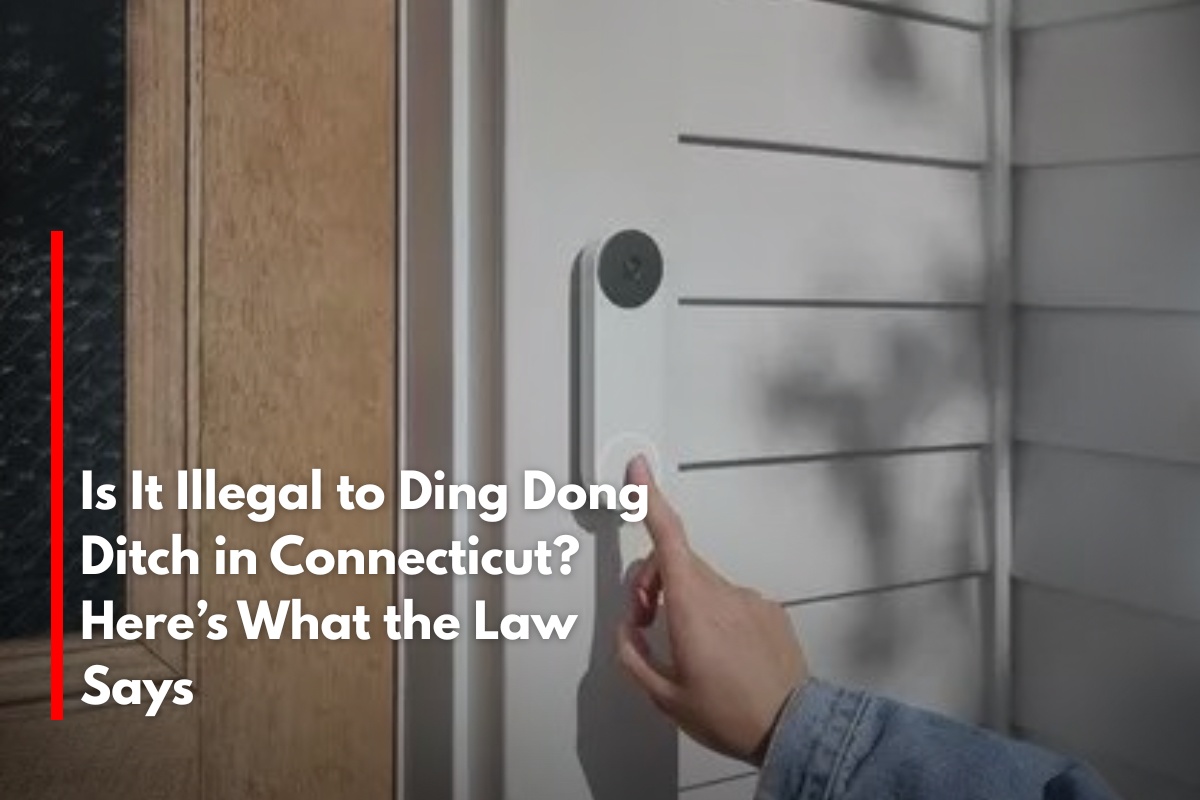Ding dong ditch — the classic prank where someone rings a doorbell and runs away before the door is answered — has entertained kids for generations. But in modern times, it raises questions about legality and consequences, especially in Connecticut. This article explores the legal perspective on ding dong ditch in Connecticut and what residents should know in 2025.
What Is Ding Dong Ditch?
Ding dong ditch involves ringing a doorbell or knocking on a door and then fleeing before the occupant answers. While often seen as harmless fun, repeated or disruptive behavior can cause annoyance, fear, or escalate tensions, leading to legal issues.
Is Ding Dong Ditch Illegal in Connecticut?
Connecticut does not have a specific statute explicitly outlawing ding dong ditch. However, related actions can lead to legal consequences depending on circumstances:
Disorderly Conduct: If the prank causes a public disturbance or repeated harassment, participants could be charged under disorderly conduct laws. This includes excessive noise or repeated nuisance behavior that disrupts peace.
Trespassing: If individuals enter private property unlawfully while performing the prank, they may face trespassing charges. Simply ringing the doorbell from public property generally is not trespassing.
Harassment or Disturbance: Persistent or targeted ding dong ditching may be considered harassment, especially if it causes emotional distress or fear.
Potential Consequences of Ding Dong Ditching
Penalties for illegal behavior associated with ding dong ditch in Connecticut may include warnings, fines, or even juvenile detention for minors depending on the severity and local enforcement. Police often use discretion and may issue warnings for first-time or minor incidents.
However, more serious cases, involving property damage, trespass, or repeat offenses, can result in criminal charges that have lasting effects on a person’s record.
Why Caution Is Important
While ding dong ditch seems like innocent fun, it can trigger unexpected reactions, including angry homeowners or law enforcement involvement. Recent national incidents have highlighted dangers when pranks escalate, though Connecticut has not seen similar grave outcomes.
It is also important for parents to educate children about respecting neighbors and understanding community standards to avoid legal trouble or unsafe situations.
Legal Advice for Pranksters
Avoid trespassing on private property — always conduct pranks from public areas.
Keep pranks harmless and brief to avoid charges related to disturbance or harassment.
If confronted by law enforcement, cooperate calmly and understand local laws.
Remember that repeated disturbances could escalate penalties quickly.
While ding dong ditch is not outright illegal in Connecticut, associated behaviors like trespassing, harassment, or disorderly conduct can lead to legal trouble. To stay on the safe side, it’s best to keep pranks respectful, avoid private property, and consider neighborly goodwill in all actions. Awareness and moderation help ensure that playful antics remain just fun without unintended consequences.
Sources
(https://www.youtube.com/shorts/qAwxCplD7L8)
(https://www.cnn.com/2025/09/02/us/houston-ding-dong-ditch-shooting-arrest)
(https://www.talkofconnecticut.com/2025/09/03/man-charged-in-shooting-death-of-11-year-old-boy-playing-ding-dong-ditch-prank/)
(https://www.reddit.com/r/houston/comments/1n6tytf/i_played_dingdong_ditch_as_a_kid_in_texas_today/)
(https://www.youtube.com/watch?v=sNQ6o43rqX0)











